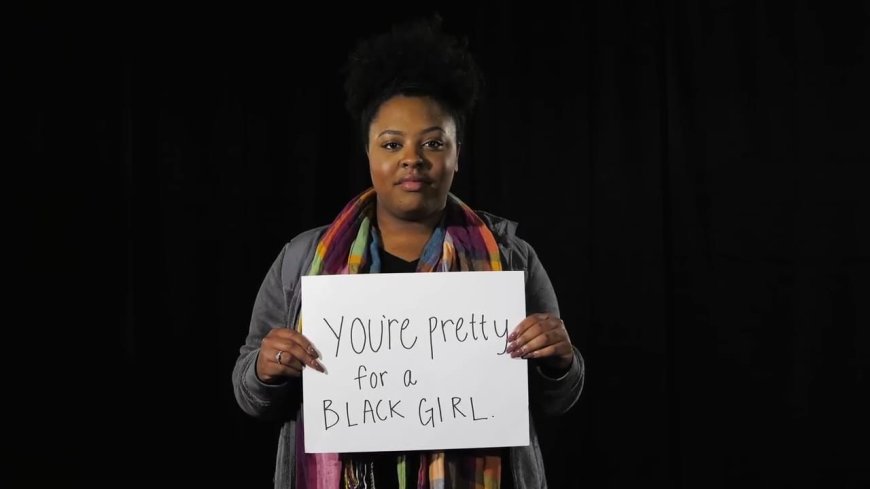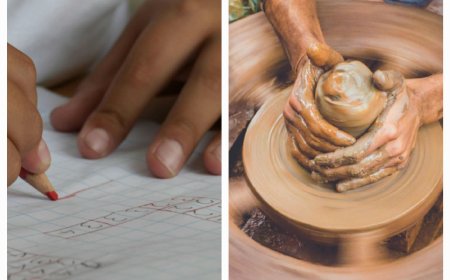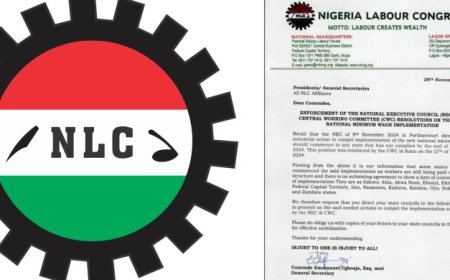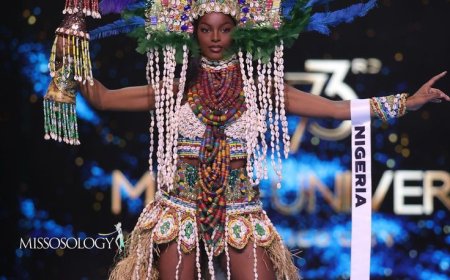BOUNDARIES AND MICROAGGRESIONS
This article delves into the world of microaggressions, examining how seemingly harmless comments or actins can have a profound impact on individuals and society as a whole.

image source: PBS LearningMedia
“You look beautiful for someone from Ikirun” someone once told me – or better said, I get it a lot from people, among other comments like: “Wow! You absolutely don’t look like someone from the West”, “I never imagine you can speak or understand Yoruba language, you don’t look it”; and so on.
For many years, those comments to me sounded like compliments when in actuality they are not. If I look beautiful for someone from Ikirun, it would mean that residents of Ikirun are known for not being beautiful – which is false. There are different ways and manners in which we consciously or unconsciously dish out and get served microaggressions – in the way we react, act and talk. The aim of this article therefore is to attempt a conceptual definition of the word ‘microaggression’ and point out some common usage of words which are actually not complimenting but rather microaggressive, as well as their impacts on people.
Microaggression as a term was first used by Dr. Chester Pierce, a Harvard psychiatrist. It stemmed from regular insults he had witnessed from people who were non-blacks, against people who were black. From coining two different words, micro (which means something small) and Aggression (which is the act of initiating hostilities); he derived ‘microaggression’ which he explained as small insults consciously or unconsciously directed at people, which could have major impacts on their psychological and physical health overtime. Furthermore, according to the English dictionary, microaggression can be defined as any small-scale verbal or physical interaction between those of different races, cultures, beliefs, or genders that may have no malicious intent, but that can be interpreted as an aggression.
Microaggressions can be intentional or unintentional, however, they stem out mostly from biases, beliefs, opinions, assumptions, stereotypes; and speculations that exist outside the actual reality of people involved. They develop mostly form people’s ethnicity, age, gender, race or even size.
There are various forms of microagression, they will be narrowed down to four types – including, Disregarding personal boundaries, microassaults, microinvalidation and microinsults.
Disregarding personal boundaries
image source: a post of Solomon Buchi on Instagram
This type of microaggression is common among people who are used to communal way of living. For example, in my neighborhood, I have neigbours who constantly yell my name right behind the fence of my house just to request that I ‘pump some water’ for them – this is definitely not allowed in some other countries as it is seen as causing nuisance to someone in their house, or failing to know their boundaries. The communal ideology that many people hold, makes them oblivious to boundaries. As expressed by the popular Nigerian blogger – Solomon Buchi, above, it is rude to shorten people’s names when they did not demand that their names be shortened. I love it when people call or shorten my name, however when I introduce myself as ‘Emmanuella’, I tell them: “you can call me Ella”. Many people do not appreciate the shortened form of their names. The advisable thing to do therefore is to ask them if they would love to be called a certain way or treated in a certain manner and if not, respect the choice!
Microassaults
image source: muhealth.org
Sometime, after resuming from one of the common ‘ASSU strikes’, I saw my course mate who had added weight. Unconsciously, the first sentence that came out of my mouth after yelling her name was “ahnahn babe you have become fat o!” Although she smiled it off and told me how much she enjoyed the strike, something within me told me it was not right. That right there was body shaming and was microagressive. Many people have insecurities about their looks and the slightest insensitive comment could get to them. in the society today, using the terms ‘fat’ or ‘thin’; to address people is insulting and not sensitive enough. In a like manner, I joined an online community and students on the group ended up arguing about the best kind of education. The ones that attended a university claimed another form of education apart from a university setting is substandard. They made comments like “Did you finish from poly? Oh, it’s very obvious from your vocabulary”, “why are you talking to me? You didn’t even finish from a university” and so on. Apparently, it was just ‘cruise’ but definitely it led to bigger arguments are the supposed ‘Poly’ (polythenic) graduateus lamented on the derogatory comments. Now, microassaults are quite common and people who commit the act either do not know its gravity or they overlook it just to have fun. Understanding that people have reasons for ending up in certain circumstances, is important, because when we realize this, we would treat people more with respect and be more sensitive.
Microinvalidation
image source: firstpost.com
This is another type of microaggression. The act of invalidation connotes the act of discrediting or making someone’s claims false. For example, when someone complains about a product or laments on how much they reacted using the product and you counter-commented claiming how false their statement is and how you have never reacted to the product, you have invalidated their claim. Invalidating people is not only insensitive, it also makes people feel unheard, invisible and less of themselves. When you have a good review about a product and someone else does not, it is polite to allow them express their opinions and grievances, because people are generally different-- their feelings, ideas, and experiences cannot always align.
Microinsults
image source: www.cavsconnect.com
Microinsults are mostly conscious and intentional comments made to disrespect people. these comments also include sarcastic replies to ridicule people. For instance, talking down on people because of their race or ethnic group is microaggressive. There was a popular joke that people made sometime about a group of people in a car, who were stopped at a check point. The soldier asks the driver to tell him the number of people in the car and the driver replies – “four people and one Hausa man’’. Many people, including me laughed a lot when the joke pops up but in the actual fact, it is a micro aggression – would you say that a Hausa man or Hausa people are not humans? Statements like – “Yorubas are dirty”, “white people are gullible”, “Nigerians are fraudsters”, “Lagos girls are prostitutes”, etc.; are microinsults and consequently, microaggressive.
There are other ways of carrying out microaggressions such as – staring down at people, ignoring some sets of people at a gathering because they don’t belong to the ones you identify with, avoiding eye contact, sitting nonchalantly while a lecture is going on, touching people without consent; and so on.
Conclusion
Microaggressions most times go unnoticed and dismissed, we however should not overlook their impacts on individuals. These acts have the capacity to negatively affect individuals’ mental health and well-being. According to experts, microaggressions can also lead to depression, substance use disorders, sleeping problems, high blood pressure, eating disorders, low self-esteem, and other mental and physical diseases. A consequence of having many people who suffer from or inflict miscroagressive behaviours is that the society at large would also experience malfunctioning.
What's Your Reaction?




































































































